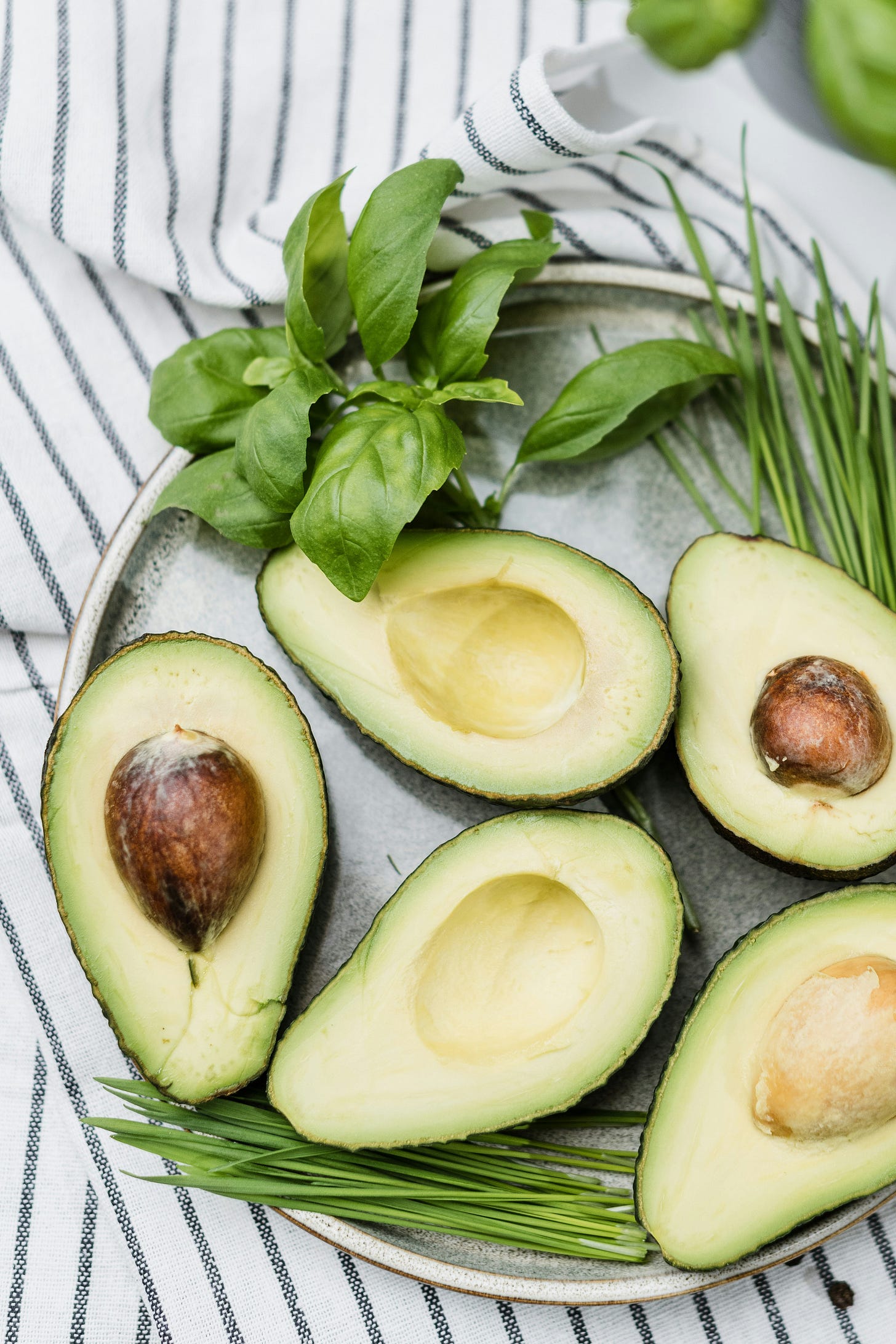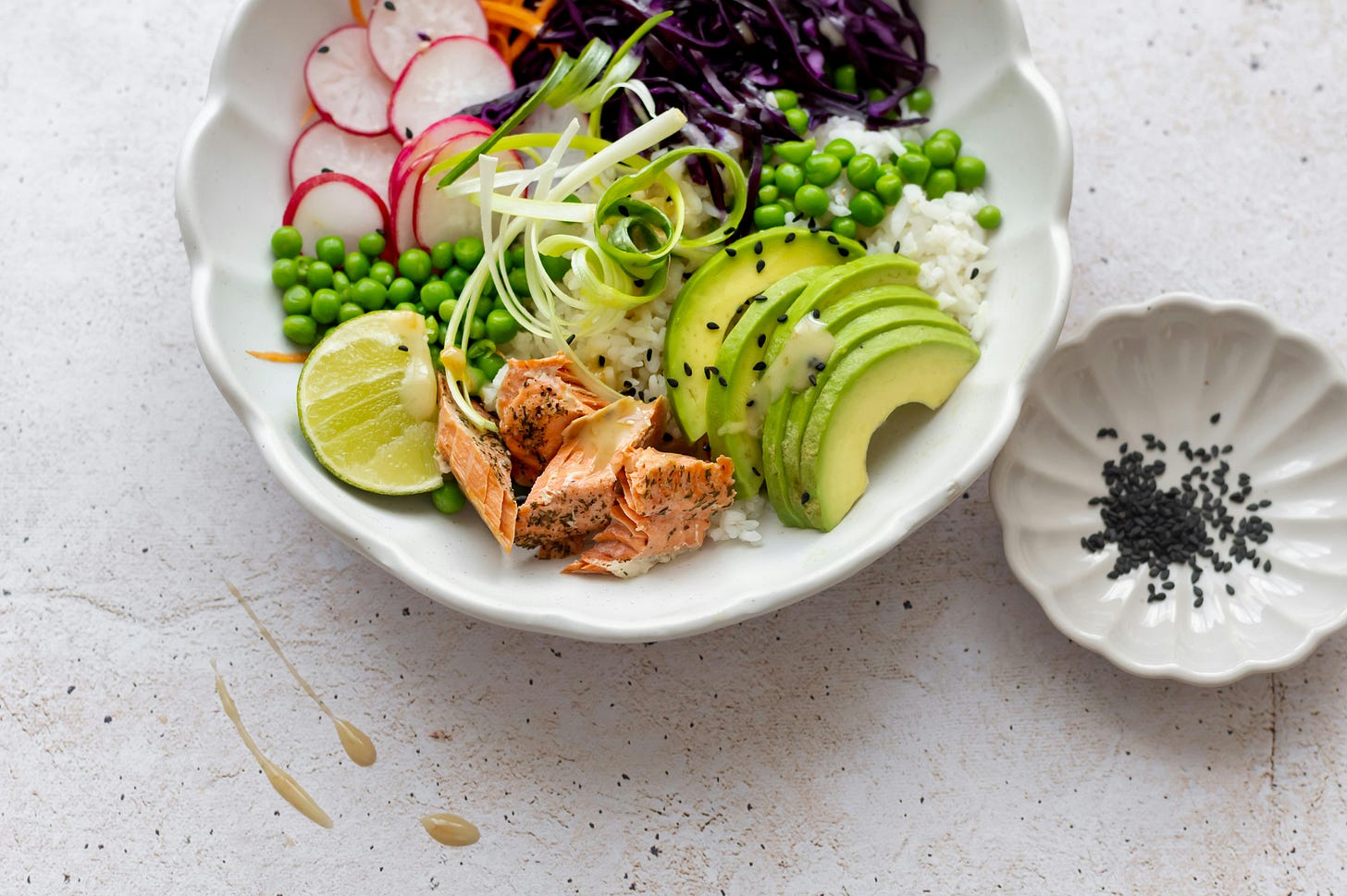10 Things I Wish Women Knew About Their Menstrual Cycle
Understand the phases, work with your hormones, and start feeling more in sync with your body.
Your menstrual cycle isn’t just about your period.
Why did I only learn this in my late twenties, when I was studying nutrition?
Ffs.
Anyway, the menstrual cycle is a monthly blueprint for how your energy, mood, metabolism and even brain function can shift.
Knowing how to work with it (instead of fighting against it) is one of the most empowering things you can do.
Which is exactly why I suggest tracking your cycle in an app. It’s been a game changer for me!
I’m crying in a supermarket… am I ok? Wait, let me check my app. Ok, due on in two days, makes sense.
Hmm, why are my jeans not fitting as well? Let me check my app. Ok yep, my period is due in a few days (I do really hate this part of PMS tbh).
Whether you’re trying to improve your mood, boost your energy, reduce PMS, or simply feel more like yourself - this post is here to help you understand what’s actually going on, and how to support each phase.
I recommend that you also read 10 Things I Wish Women Knew About Their Hormones and Supplements for Female Health - What Actually Helps.
OK, let’s get to it!
1. Your cycle has four phases. It’s not just your period.
The menstrual cycle has four distinct phases - menstrual, follicular, ovulation, and luteal. Each phase is marked by hormonal shifts that affect your energy, mood, appetite, sleep, motivation, and more (wooop!).
What to do -
Track your cycle using an app or a journal (day 1 is the first day of your period)
Pay attention to patterns in mood, energy, and cravings (I personally get intense chocolate cravings three days before my period. Luckily I live above a branch of the most famous chocolate cake brand in Lisbon…)
Begin to map your lifestyle habits (like exercise or social plans) around your phases (I’m a way off this but there is actually no way I’m getting married in my menstrual or luteal phase! Why would I do that when I can look ahead in my app and pick an alternative date?)
2. The follicular phase is a great time for goal-setting and high-energy tasks. Starting after your period, the follicular phase is when oestrogen starts to rise again. This can boost mood, motivation, and brain function. Many women feel clear-headed, optimistic and more social in this phase.
What to do -
Schedule challenging work projects, social events, or workouts here
Try new things! Your brain is more primed for learning and creativity
Eat iron-rich foods to replenish post-period losses (like lentils, red meat, and dark leafy greens)
3. Ovulation isn’t just about fertility…it might be when you feel your most attractive.
Ovulation typically occurs around the middle of your cycle and is triggered by a surge in luteinising hormone. Oestrogen is peaking, testosterone is higher, and you might feel more confident, magnetic, or energised. Skin may even look clearer and brighter (a win is a win).
This phase also comes with a spike in dopamine - your motivation and reward chemical. While this can bring drive and energy, it can also mean more impulsive choices - whether that’s spending, snacking, or texting someone you probss shouldn’t.
I read a quote the other day that said something about how the key to success is getting dopamine through things that actually make your life better - e.g. exercise, career success, spending time in community etc.
Be mindful of the cheap dopamine.
What to do -
Prioritise high-performance tasks like giving presentations, hosting meetings, brainstorming sessions, or recording content
Tackle communication-heavy work such as interviews, negotiations, networking, or pitching ideas
Enjoy strength training or more intense workouts
Be mindful of cravings or impulsive decision-making
4. The luteal phase is when things start to shift.
After ovulation, progesterone rises - and for many, symptoms begin. You might feel more introspective, tired, snacky or emotional. If progesterone drops too quickly, PMS symptoms can be more intense.
What to do -
Prioritise sleep, routine, and gentle movement.
Reduce alcohol and ultra-processed foods as they worsen PMS symptoms
Build in protein and fibre-rich snacks to support rising appetite and blood sugar stability
Lean into introspective tasks like journaling (I advise journalling throughout your cycle, but it can be especially helpful here)
Support with magnesium glycinate and omega-3s (you may want to do this throughout your cycle - but it can be especially useful in this phase)
This link gives you money off my favourite wellbeing e-commerce site - the products they sell are fantastic.
5. Your period is a sign of what’s gone on all month.
The quality of your bleed (length, heaviness, symptoms) reflects your hormonal health from the last month. An especially painful, heavy, or irregular period often points to blood sugar issues, low progesterone, inflammation, or stress.
What to do -
Keep track of symptoms and changes month to month
Prioritise anti-inflammatory foods (berries, oily fish, olive oil, turmeric)
Seek support if your period is consistently painful, very heavy, or missing
6. You burn more calories and need more rest in the luteal phase.
Your metabolism naturally increases after ovulation, meaning you might feel hungrier and more fatigued. This isn’t a lack of willpower, it’s biology! You may also be more sensitive to stress and sleep disruption (crying in supermarkets etc etc).
What to do -
Don’t undereat! Ensure you have sufficient sources of protein, healthy fats and fibre
Lean into rest (perhaps instead of working late in the evening, you can finish a bit earlier and have a bath, maybe you avoid overly scheduling your weekend - and you spend more time relaxing)
Aim for 7–9 hours of quality sleep, ideally winding down earlier
Say no more often!
7. Progesterone is your calming hormone.
When it’s in balance, progesterone supports mood, sleep, and fosters a sense of calm. If it’s too low (often from stress or under-eating), you may feel anxious, irritable, or struggle to sleep.
What to do -
Support ovulation through stress management and adequate calories
Include healthy fats (seeds, avocado, olive oil) to support hormone production
Try magnesium glycinate and vitamin B6 for PMS symptoms
8. Your cycle is affected by your lifestyle - and vice versa.
Sleep, stress, diet, exercise, alcohol and even screen time can impact hormone levels and how your cycle feels. And in turn, your cycle can affect your ability to cope with these things.
What to do:
Build a consistent routine around meals, sleep, and movement
Eat enough food (especially protein and healthy fats)
Consider cycle-syncing elements of your week to make things easier
9. Tracking your cervical fluid and basal body temperature can tell you a lot.
Cervical fluid changes throughout your cycle and can help you understand when you’re fertile. Basal body temperature (BBT) rises slightly after ovulation and can confirm that it’s happened.
What to do -
Learn to observe your cervical fluid
Use a basal thermometer to track morning temperature daily if you want to confirm ovulation.
10. When you understand your cycle, everything starts to make more sense.
Understanding your cycle helps you anticipate changes, adjust your schedule, and show yourself more compassion. It can turn what feels random into something empowering.
What to do -
Start by learning the basics of your cycle length and symptoms
Adjust your expectations - don’t force high performance every day!
Share what you’re learning with friends or partners to normalise it
If this post helped you, you can -
→ Forward it to a friend who might need this info too
→ Leave a comment and let me know what surprised you most!
→ Or tap the ❤️ so I know you’re enjoying this kind of content (this also helps other people find this post, so you’d be doing both me and them a huge favour!)
I’m a 32 year old nutritionist living in Lisbon, and I post twice weekly about nutrition and wellbeing. Subscribe and join in on the fun!
If you’re interested in corporate nutrition talks or 1:1s for the company you work for, send an email to info@sophietrotmannutrition.com. And, let’s connect on Insta.
Have a lovely rest of your day.
Sophie xxx










Great post! Also - if you have ADHD, your symptoms may increase in your luteal phase. Estrogen drop = dopamine drop!
Thank you for enlightening me more about women. As a family man with 5 of them in his life !